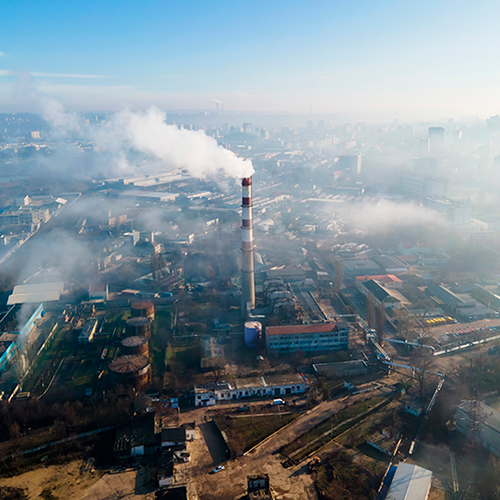Never before have we had access to so much information as in the last decade. However, this has brought confusing situations, such as an avalanche of fake news that reach us via Internet.
We are going to highlight 10 of these fake news about the environment that we are reluctant to investigate
1. Coronavirus favored environment: fake
While the lockdown slowed air, vehicular traffic worldwide, and reduced nitrogen dioxide (NO₂) pollutant emissions, this will rebound when economic activities return to normal.
Once normality is fully restored, what was not issued during the health crisis will be less than the subsequent spread (MNCN-CSIC).
Wild animals take over cities, another fake covid-19 news
During recent lockdowns, social networks were flooded with images of wild animals that, taking advantage of empty streets and parks, ventured out to explore the cities. Many of these images were real, such as deer strolling in Japanese cities or wild turkeys taking refuge in a school in San Francisco Bay. However, many others were fake or old news, such as dolphins swimming in Venice or elephants getting drunk in a tea plantation in China (Mayor, 2020).
2. Biodegradable bags are the solution to plastic: Fake
The material with which they are made does not degrade when it reaches the oceans; it needs specific conditions to fragment into smaller parts, which still end up in rivers or the sea (Greenpeace, n.d.).
The so-called “biodegradable” bags are not a definitive solution to plastic. What should be promoted is the reduction of plastic use more and more, instead of spreading fake news to justify biodegradable bag use (PUCP).
3. Climate change is a hoax: fake
Climate change is real, and we, human beings must deal with it. Scientists conclude that this phenomenon has had widespread impacts on natural systems and is increasing (Greenpeace, n.d.). If governments do not act promptly, climate change will continue to affect everyone. The most affected will be farming and coastal communities and the poor (Amnesty International).
4. Cutting down trees is totally negative: fake
If done conscientiously and under strict sustainable tree resource management, logging is even supported by environmental organizations such as Greenpeace.
5. An energy system cannot run 100% just on renewable energy: fake
In upcoming years, innovations will make zero-polluting energy that reaches the entire population as a reality. For the time being, power grids need flexibility and a combination of renewable resources, smart grids, interconnections, demand management and storage.
There are 7 countries that already have almost 100% renewable energy, and they are: Iceland, Paraguay, Costa Rica, Norway, Austria, Brazil and Denmark (EIA). No doubt these facts are not mentioned in the fake news that come out about renewable energy capacity (Greenpeace, n.d.).
6. It is impossible to meet the world’s food demand if only organic techniques are used in the field: fake
It is not that it is impossible; it will probably take longer, but agro ecology is the best alternative to the challenges we face today and which will most likely worsen in the future.
To feed everyone in 2050, our diet will need to be ruled by plant-based foods, moderate amounts of animal-based foods, and minimal waste. Fake news frequently denigrate green practices for any reason (Greenpeace, n.d.).
7. Water transfers do not favor soil desertification: fake
Erosion that turns fertile livable land into a desert may only be stopped with proper water management and forest management to avoid soil loss, flooding and large forest fires.
It is necessary to control illegal well and irrigation growth, uncontrolled constructions of reservoirs and water transfers, and a lack of control of polluting discharges into water sources (Greenpeace, n.d.)..
8. Nuclear energy is cheap: fake
This type of energy requires a high initial investment by the States, and its price does not include waste management and subsequent decommissioning costs.
Nor do they include liability insurance costs in case of an accident, or the cost of safety-measure updating. Regardless, how economical this type of power may be, a nuclear accident is devastating (Greenpeace, n.d.).
9. Buses do not pollute more than cars: fake
Buses are generally more polluting because they are heavier and larger. However, a car carries fewer people, while buses can carry up to 120 passengers, and this represents a lower emission of gases per individual.
Of course, buses must have all optimal technical-mechanical conditions, otherwise they contribute more to pollution. Therefore, in addition to promoting the use of mass public transport, more and more hybrid and electric buses should be implemented because of their low carbon emissions (Minambiente, 2018)..
10. Burning garbage is effective waste disposal: fake
The organic components of wastes react with oxygen in the air and are transformed into carbon dioxide and water, but also release highly toxic gases into the air, including heavy metals, and acid gases, among others (Soto, 2020).
In addition to environmental impact, these emissions can be harmful, damaging to our body systems, like our respiratory, endocrine, nervous and reproductive systems, as well as different types of cancers, among other health problems (Garelli, 2020).
There are sectors that see disinformation and concealment of reality as a way to favor their interests. Climate change, biological annihilation, water scarcity and pollution are real and represent a threat. Let us always remember to verify the sources of the fake news that we consume so easily on a daily basis.







